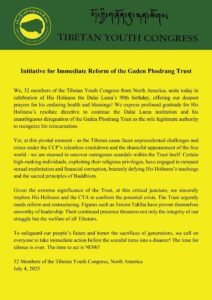
In the Age of Technological Advancements, Is Mastering Business English Still a Valuable Career Investment?
Undoubtedly, the English language is the gateway to the global business. Today’s guest shares some valuable insights for international, non-native entrepreneurs who may still struggle with the language barrier in their business endeavors.
Q: As a business owner specializing in Business English training, what inspired you to venture into this domain?
DK: The inspiration behind delving into Business English training stems from my passion for language and technology. Over the years, I have observed that effective communication in the global business arena is vital for success. As an advocate for utilizing language as a powerful tool, I recognized the immense value of helping professionals enhance their language skills to bridge communication gaps and excel in their careers.
Q: Learning a foreign language can be challenging for many. What are some common limitations professionals face without adequate language skills?
DK: One of the primary limitations is missed business opportunities. Professionals may struggle to engage with international clients without sufficient language proficiency, leading to lost deals and market expansion potential. Additionally, ineffective communication can hinder teamwork, collaboration, and project execution, affecting overall productivity and growth.
Q: With the rise of technology, how do you see the role of learning Business English evolving in the future?
DK: Technology indeed plays a significant role in shaping language learning experiences. Virtual learning platforms and AI-powered language tools will revolutionize how professionals access language training. It’s worth bearing in mind though AI in education does not aim to replace teachers completely. Instead, it serves as a helping hand for teachers. In addition to improving accessibility for students with disabilities, AI also enhances education for those with vision or hearing impairments. For instance, AI-powered converter tools like Presentation Translator enable real-time captioning for virtual lectures, ensuring accessibility for all students. While these innovations will undoubtedly aid language acquisition, the human touch remains irreplaceable. The ability to connect on a personal level and understand cultural nuances will continue to be paramount in successful global business interactions.
Q: You have recently published an e-book named ‘Nail that Small Talk’ aimed at English learners to master the art of small talk. What benefits come with that skill?
DK: At first glance, small talk may appear shallow or inconsequential. But there is much more to it. It serves as the gateway to deeper conversations and acts as a social lubricant in our daily interactions. Small talk is the foundation upon which we build rapport and establish common ground with others, breaking down initial barriers and paving the way for more meaningful dialogue. And that, in turn,
may translate into business opportunities. The truth is, most of us tend to do business with those we like and have a good vibe with.

Q: What unique strategies do you employ to help professionals overcome language barriers and enhance their Business English skills?
DK: I’m not going to be too original if I say a tailored approach to individual needs is critical. I conduct comprehensive assessments to identify specific language challenges faced by each professional. My training programs focus on real-life business scenarios, ensuring the practical applicability of acquired language skills. I put a strong emphasis on building vocabulary relevant to their industry and working on honing their conversational abilities, enabling seamless interactions in diverse business settings.
Q: Could you share some advice for those who want to elevate their language skills? What are some proven ways to boost confidence before important meetings or calls?
DK: Putting your skills to the test with role-play before any business meeting is always a wise idea. Engage in role-playing exercises to simulate real-life business situations. Practice negotiating, making presentations, and participating in discussions with your friends, colleagues, or partners. This will boost your confidence, improve your conversational skills, and prepare you for various interactions in the natural business environment. Do a dry run if you have a presentation to prepare. Record yourself; that way, you can pick up all the nooks and crannies that need more polishing.
Q: Thank you for a chat.
DK: My pleasure.
Dominika Kepska is an entrepreneur and the owner of Intermedia Global Team based in London. The company comprises three brands, offering various services, from a website creator tool, marketing, and PR to Business English and small talk training in companies of all industries Europe-wide.
Her latest e-book ‘Nail that Small Talk’ is available on Amazon.







